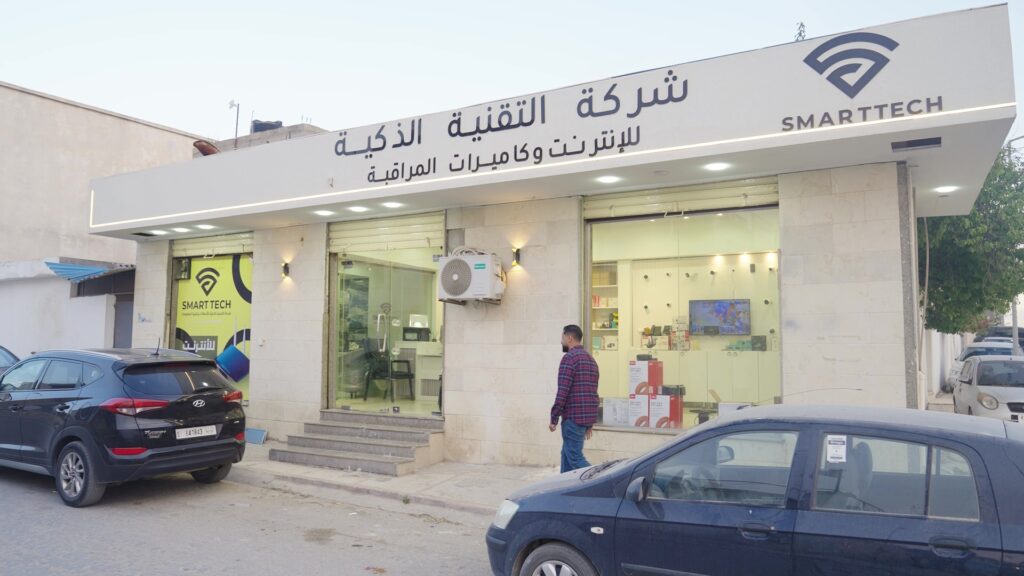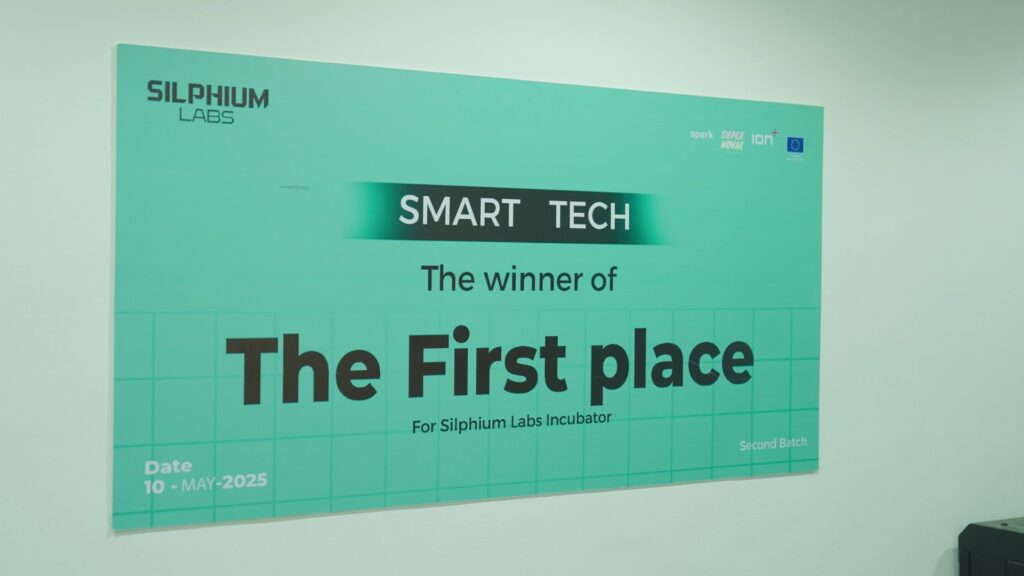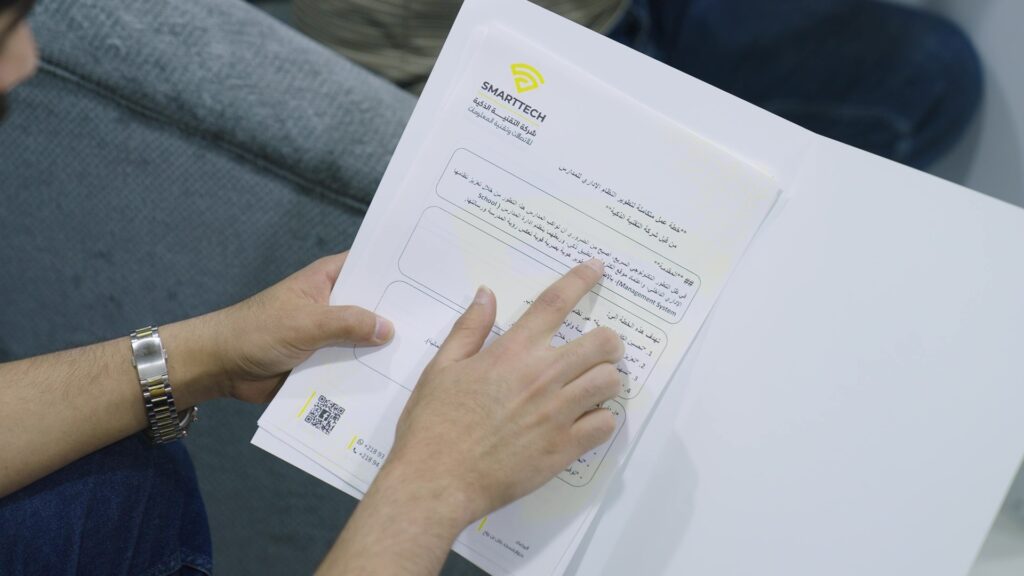Smart Tech: Building Digital Bridges in Libya’s Green Mountain

Abdullah Bashir, the founder and general manager of Smart Tech, is one of the young Libyan entrepreneurs charting a new course for his country’s digital future. What began in 2016 as a small, makeshift internet service project in a single building in Shahat has evolved into a fast-growing company delivering critical internet infrastructure across the Green Mountain region. This May, Smart Tech secured first place in the Silphium Labs pitching competition, winning €15,000 in seed funding under the Libya Startup Programme. More than just a financial victory, it marked the beginning of a new chapter for a company shaped by resilience, resourcefulness, and community service.
Abdullah Bashir, the founder and general manager of Smart Tech, is one of the young Libyan entrepreneurs charting a new course for his country’s digital future. What began in 2016 as a small, makeshift internet service project in a single building in Shahat has evolved into a fast-growing company delivering critical internet infrastructure across the Green Mountain region. This May, Smart Tech secured first place in the Silphium Labs pitching competition, winning €15,000 in seed funding under the Libya Startup Programme. More than just a financial victory, it marked the beginning of a new chapter for a company shaped by resilience, resourcefulness, and community service.
Launching Smart Tech officially in 2023, Abdullah and his team started operating in several cities across northeastern Libya—including Al-Bayda, Shahat, Qurnada, Al-Faydia, and Al-Mansoura. But the idea had long been brewing. “In 2014, ISP companies began growing in the market, and I wanted to start my own—even though the competition was huge,” he recalled. Starting small, they installed antennas on rooftops and used hotspot routers to serve cafés with basic internet services. “We didn’t know how to use a MikroTik router. We had to learn from YouTube tutorials or call engineers in Benghazi for help,” he said with a smile.
What set Smart Tech apart was not just its ambition, but its human-centred approach. “Anyone who comes to Smart Tech feels comfortable. People say we’re easy to work with,” Abdullah said. That spirit of teamwork and dedication has driven the startup to expand its engineering team from six members in its first year to a projected thirty by the end of 2025.
Libya’s unstable infrastructure—particularly power cuts and fuel shortages—has long challenged internet providers. Yet Smart Tech innovated through adversity. “We provided batteries that run on solar energy to keep our towers running,” Abdullah explained, recalling how eight-hour power cuts in 2017 forced them to find off-grid solutions.
The startup’s commitment to serving its community came into full focus after Storm Daniel devastated parts of northeastern Libya in 2023. “The internet went down across the Green Mountain area,” said Mohammed Buhalima, Smart Tech’s Network Administrator. “We installed emergency internet for hospitals in Shahat and Susa, and set up a local network linking Derna’s hospitals. It allowed them to become digitally connected again.”
Such dedication didn’t go unnoticed. In 2024, Smart Tech joined Silphium Labs, a business incubator founded in partnership with Omar Al-Mokhtar University and ION+, as part of the Libya Startup Programme—an initiative funded by the European Union and co-implemented by SPARK and Super Novae. The incubator supports entrepreneurs, particularly in underserved regions, and plays an important role in assisting Internally Displaced Persons and communities affected by natural disasters.
The programme provided Smart Tech with more than just visibility. “We used to make wrong financial decisions,” Abdullah admitted. “But in the incubator, we learned about business models, SWOT analysis, short- and long-term planning. We’re practical people—we only knew how to work. But now, we understand how to run a business.”
Winning first place and the €15,000 grant in the final pitching event was a testament to Smart Tech’s potential. “The seed funding will help us achieve two goals: open new offices and train young people on how to set up internet networks,” said Abdullah. With plans to expand fiber cable infrastructure and reach more remote towns, the company is rapidly becoming a cornerstone of digital connectivity in the Green Mountain region.
What motivates Abdullah and his team the most isn’t profit—it’s people. “When someone from a café or a bank tells us we’re the best company, that’s the biggest reward,” he said. “That’s what keeps us going.”
Through initiatives like the Libya Startup Programme, SPARK and its partners are contributing to Sustainable Development Goal 8—promoting inclusive and sustainable economic growth and employment. By equipping young entrepreneurs with the tools to build resilient businesses, the programme is helping shift Libya’s economy away from oil dependency toward innovation, digital inclusion, and private sector growth.







